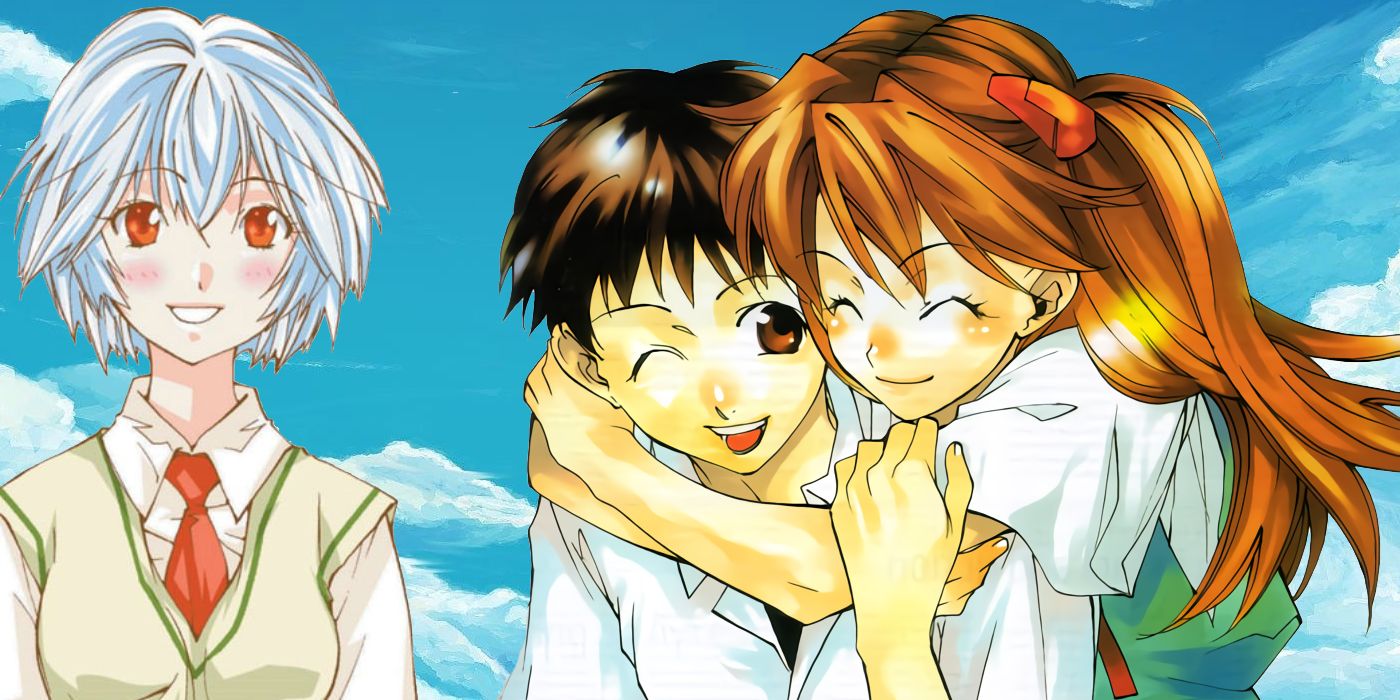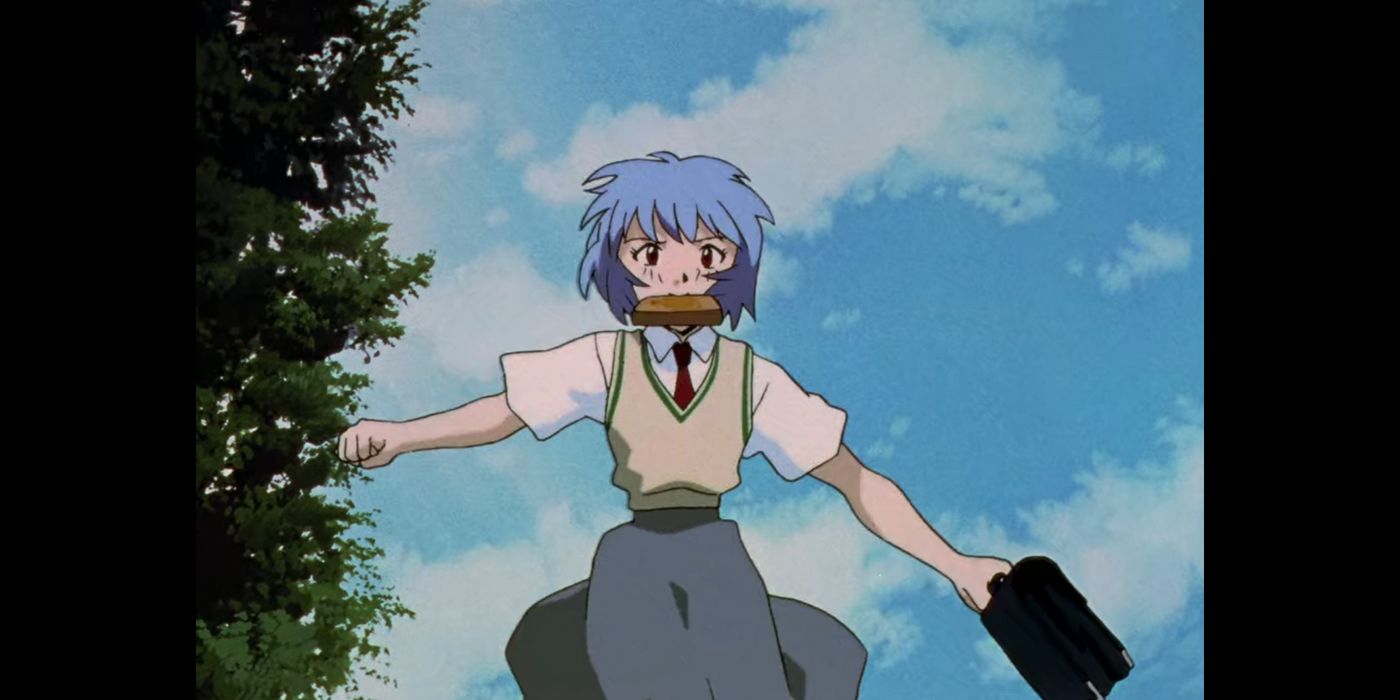
As one of the most important anime of all time, Neon Genesis Evangelion has a reputation as dark and brooding, but the many manga it spawned haven't always followed that trend. Evangelion has had a variety of manga spinoffs over the past decades, although none of them have been quite as illuminating as the 2003-2006 manga, Angelic Days. Based on the slice-of-life style school dream sequence that takes place in the last episodes of the anime, Angelic Days puts the emotionally tortured trio of Evangelion pilots into a far more ordinary setting--except, that is, for the fact that they still have to pilot the occasional mecha.
As in the fantasy sequence, Angelic Days recasts the story of Evangelion to fit the tropes of the slice-of-life romance manga: Shinji is the clueless male protagonist, while Asuka is his lifelong friend from childhood and Rei is the exotic new transfer student, far more outgoing to boot. Kaworu also appears as a childhood friend of Shinji's, but one who doesn't get along with Asuka at all, and who has become needy and dependent on Shinji. Many of the adult characters appear as well, such as Misato as the kids' homeroom teacher, and Gendo, who still leads NERV. Even Shinji's mother, Yui, is still alive this time around. The angels are still a problem, but they're much more of a background element than they are in the main series, as the focus remains on the relationships and the maturity of the characters.
One of the most tragic elements of Evangelion is how trauma defines so many of its characters. As an alternate timeline to the events of the anime series, Angelic Days takes a more optimistic and idealistic approach, in contrast to the series' dark and nihilistic tone. The cast still has their issues, but they're all just a little bit healthier this time around, and that's enough to give them a fighting chance.

While Kaworu's existence isn't ever quite explained, and certain canonical aspects of the Evas don't make sense here, to fixate on that is missing the point. Angelic Days is about the characters of Evangelion, not the plot. Even minor characters, like Kensuke and Hikari, are given their time in the spotlight. It's an opportunity to see them in an environment where they don't actually have to suffer, where they aren't being psychologically ripped apart or melted into a gooey hivemind. No one, when faced with the situations in Evangelion, would be at their best, so why should these characters be judged only at their worst?
There's something cathartic about reading Angelic Days after watching the original Neon Genesis Evangelion anime series, or even the Rebuild films, the last of which was finally released in Japan in March. It's far from perfect, with sometimes questionable art decisions and an entire volume dedicated to flashbacks of Gendo and Yui that (although interesting) slow down the story's pacing, it makes for a refreshing take after the seemingly endless misery that the series can invoke. For those in need of a palate cleanser after watching Rebuild, there aren't many better options than this.
from ScreenRant - Feed https://ift.tt/3wogWVi
via IFTTT







0 comments:
Post a Comment